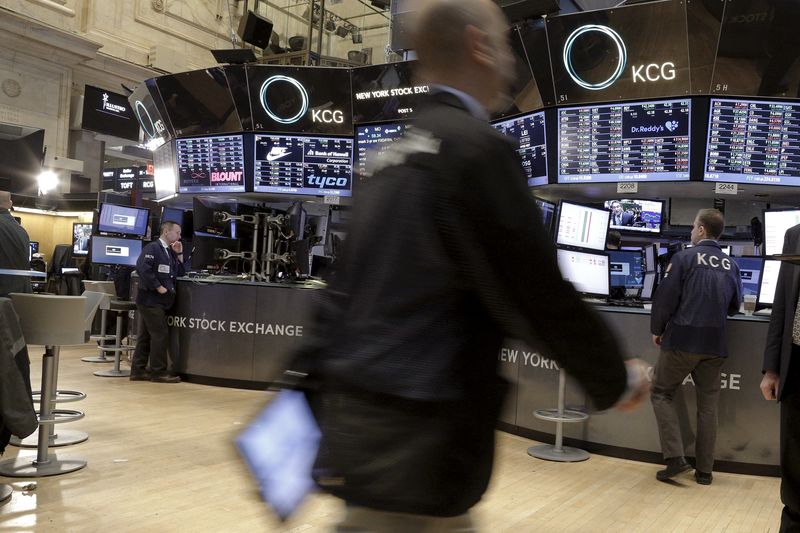
© Reuters.
By Geoffrey Smith
Investing.com — Oil prices rise again as the European Union finally nails down its plans for banning imports from Russia. Eurozone inflation, meanwhile, accelerated in May to hit a new record high of 8.1%. President Joe Biden is due to meet with Federal Reserve Chair Jerome Powell, while Nelson Peltz has found a board seat at yet another consumer staples company. China’s economy looks set to pull out of its COVID-induced dive, as lockdowns are lifted in Shanghai. Here’s what you need to know in financial markets on Tuesday, 31st May.
1. EU finally agrees Russian oil embargo, with caveats
Crude oil prices rose after the European Union finally agreed a sixth sanctions package that will all but end imports of Russian crude and refined products from the end of the year.
Heads of government from the EU’s 27 member states made a key concession that imports via pipelines will be exempted from the embargo, allaying concerns from landlocked Hungary, Czechia, and Slovakia. EU officials estimated that the ban in its revised form will cut imports of Russian oil by over 90% from their prewar levels.
Brent crude gained 1.6% to $119.48 a barrel, while U.S. crude futures rose 1.5% to $118.88 a barrel.
2. Biden to discuss inflation with Powell
U.S. President Joe Biden is to meet with Federal Reserve Chair Jerome Powell later Tuesday to discuss how to bring down inflation, which hit a 40-year high in March and ticked down only marginally in April.
Biden had penned an editorial for The Wall Street Journal, published on Monday, in which he reiterated that fighting inflation was “our top economic challenge right now” and the “primary responsibility” of the Fed. He pledged not to interfere with its decisions.
Biden’s Democrats desperately need to bring inflation down over the next six months to neutralize its impact on the mid-term elections, where they risk losing their control of both chambers of the legislature.
3. Stocks set to open lower on EU oil ban news
U.S. stocks are set to reopen after the long weekend on a downbeat note, as the EU’s Russian oil embargo threatens to squeeze energy prices and inflation higher for longer, pushing back the day when the Federal Reserve can afford to take it easier with monetary tightening.
Fed Governor Chris Waller, an inflation hawk, repeated on Monday that he sees hikes of 50 basis points each for “several meetings” to come until there is a “substantial” reduction in inflation.
By 7.00 AM ET (1100 GMT), Dow Jones futures were down 140 points or 0.4% while S&P 500 futures were also down 0.4% and Nasdaq 100 futures were 0.1% lower. Benchmark Treasury bond yields rose by between 5 and 8 basis points across the maturity spectrum.
Stocks likely to be in focus later include U.K.-based Unilever (LON:ULVR) (NYSE:UL), whose stock in London rose over 7% after the consumer staples group bowed to shareholder pressure and appointed Trian’s Nelson Peltz to its board as a non-executive director. Look out also for AMC Entertainment (NYSE:AMC), whose core movie theater business got a fillip from a strong opening weekend for Top Gun: Maverick.
On the data calendar, there are data out on house prices, as well as the Chicago PMI for May and the Conference Board’s consumer confidence index.
4. Chinese economy pulls out of COVID dive
Chinese stocks rallied and the yuan rose as the country’s official COVID-19 case count fell below 100 for the first time in months, bolstering hopes for a rapid reopening of key economic hubs such as Shanghai and Beijing.
The country’s official manufacturing and services purchasing managers indices also both showed clear rebounds in May after plunging in March and April due to lockdowns that affected over 400 million people at one point, according to private sector estimates.
The composite PMI rose to 48.4 from 42.7 in April. That’s still below the 50 level that typically signifies growth, but the news was enough to lift benchmark stock indices by as much as 1.9%, while the offshore yuan rose 0.1% to 6.6695 against the dollar.
5. Eurozone inflation hits record high in May
Inflation in the Eurozone hit 8.1%, a new high for the 23-year-old single currency regime.
Prices rose 0.8% on the month, well above estimates, with energy and food posting particularly big increases.
Data released earlier had shown a mixed picture, with French first-quarter GDP being revised down to show a drop of 0.2% from the previous three months and Italian data being revised up fractionally. More timely data were mostly negative: French consumer spending fell in April in real terms, while Germany’s seasonally-adjusted jobless total fell by less than expected.
The euro had risen to its highest in over a month on Monday as German inflation data briefly revived speculation of a 50 basis point hike in ECB rates in July. However, both the French and Italian central bank governors pushed back against the idea again on Tuesday.
Source: Investing.com





























